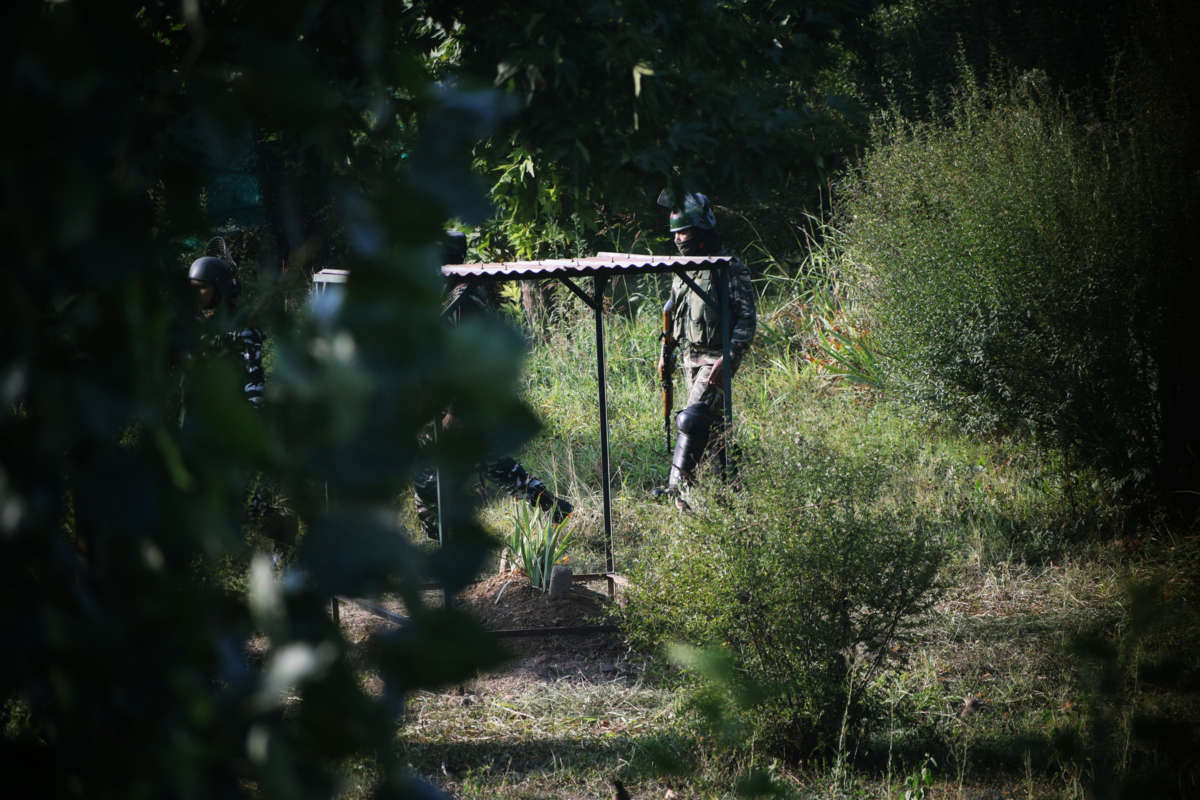Support justice-driven, accurate and transparent news — make a quick donation to Truthout today!
One of the most important resistance leaders in Indian-controlled Kashmir, the site of the world’s longest and most militarized conflict, has died. Since 1947, Kashmir has been divided between India, Pakistan and China, all nuclear powers. India and Pakistan have fought multiple wars over the region, which both claim as theirs. The majority of people in Indian-controlled Kashmir, however, claim their right to self-determination, with many supporting the creation of an independent Kashmir. The Indian government refuses to acknowledge this position, arguing that political unrest in Kashmir is entirely fueled by Pakistan.
On September 1, Syed Ali Shah Geelani, who consistently opposed Indian rule through decades of political activism, died at his residence at age 91. Geelani, who was suffering from a prolonged illness, had been living under house arrest since 2010. In total, the pro-self-determination politician spent more than 20 years of his life incarcerated.
Geelani began his career as a schoolteacher and later joined Kashmir’s biggest religious and political party, the Jamaat-e-Islami, in the 1950s. In the late 1980s, when an armed movement against Indian rule burgeoned in the region, Geelani quit electoral politics and became the face of anti-India resistance. In 1993, he helped found the All Parties Hurriyat Conference, a political organization that popularized tactics of civil disobedience, such as mass strikes and shutdowns.
In the political space, Geelani was a consistent proponent of Kashmir’s incorporation with Pakistan, a position he justified based on his Islamist beliefs. While many did not agree with this position, Geelani was widely respected for refusing to negotiate with the Indian state, famously asserting that, “India can’t be trusted unless it calls Kashmir a disputed territory, demilitarizes the region, and releases political prisoners for a meaningful dialogue.” Unlike other Kashmiri leaders who have been popularly criticized for compromising on Kashmiri demands for self-determination, Geelani maintained his commitment to seeking a UN-mediated resolution to the Kashmir conflict. During Kashmir’s recent years of civilian protests, the slogan “Na jhukne wala Geelani! Na bikne wala, Geelani!” (Geelani, the one who doesn’t bow and can’t be bought!) became popular.
News of the death of the former leader of the All Party Hurriyat Conference spread quickly. Police and paramilitaries blockaded the area around Geelani’s home, blocking media and civilian access. Traditionally, people in Kashmir visit the homes of the bereaved as part of the mourning process.
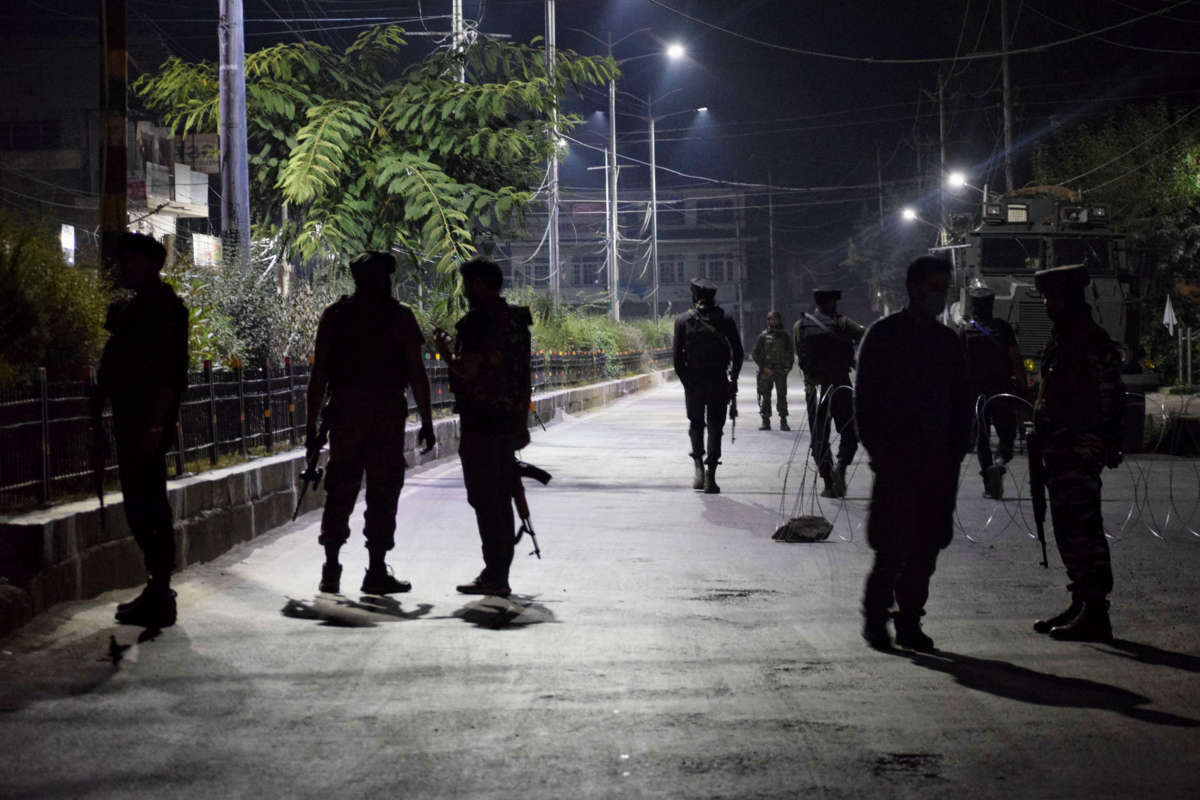
After Geelani’s death, the government restricted public movement and cut almost all internet and mobile phone services across the entire region. According to the state government, the communication blackout is an effort to preserve “law and order” in the troubled region. However, many people in Kashmir see the blackout as a deliberate effort to prevent collective mourning in the wake of Geelani’s death. Cultural mourning practices in the region frequently involve public funeral processions, congregations, and, in the cases of deaths of political figures, may also include protests. The Indian government has severely restricted public mourning in Kashmir since the outbreak of mass protests following the death of an armed fighter, Burhan Wani, in 2016.
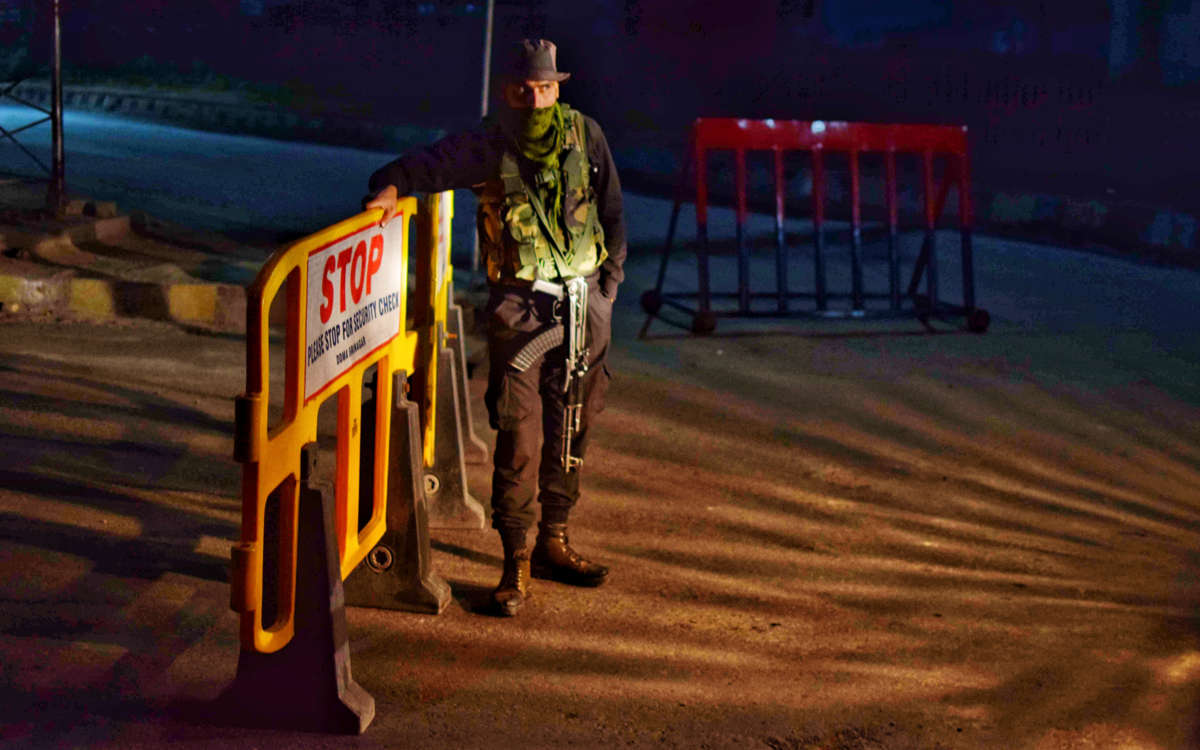
In the last decade, the Hindu nationalist Indian government has imposed hundreds of communication blackouts in regions it deems politically sensitive, leading some to call it the world’s leader in internet shutdowns. Kashmir’s 8 million citizens are frequently subjected to internet and telecommunication blackouts. From August 2019-February 2020, following the Indian government’s revocation of Jammu and Kashmir’s statehood and autonomy, Kashmiris endured the longest communication blackout in any democracy’s history. “This feels just like August 2019,” photojournalist Sanna Irshad Mattoo said in a phone call during a short restoration in internet services when she also sent these photos.
Tensions rose further when media reports emerged in which Naseem Geelani, Syed Ali Shah Geelani’s son, described how, immediately after his father’s death, the Jammu and Kashmir police “snatched his father’s body and forcibly buried him.” In this Muslim-majority society, the interruption of death rituals is a profound violation. The family was prevented from conducting last rites and family members were not present at the burial. Later, the Jammu and Kashmir police also filed a police case against Geelani’s family under the UAPA (Unlawful Activities Prevention Act), one of India’s draconian anti-terror laws, after a video surfaced of Geelani’s body draped with a Pakistan flag.
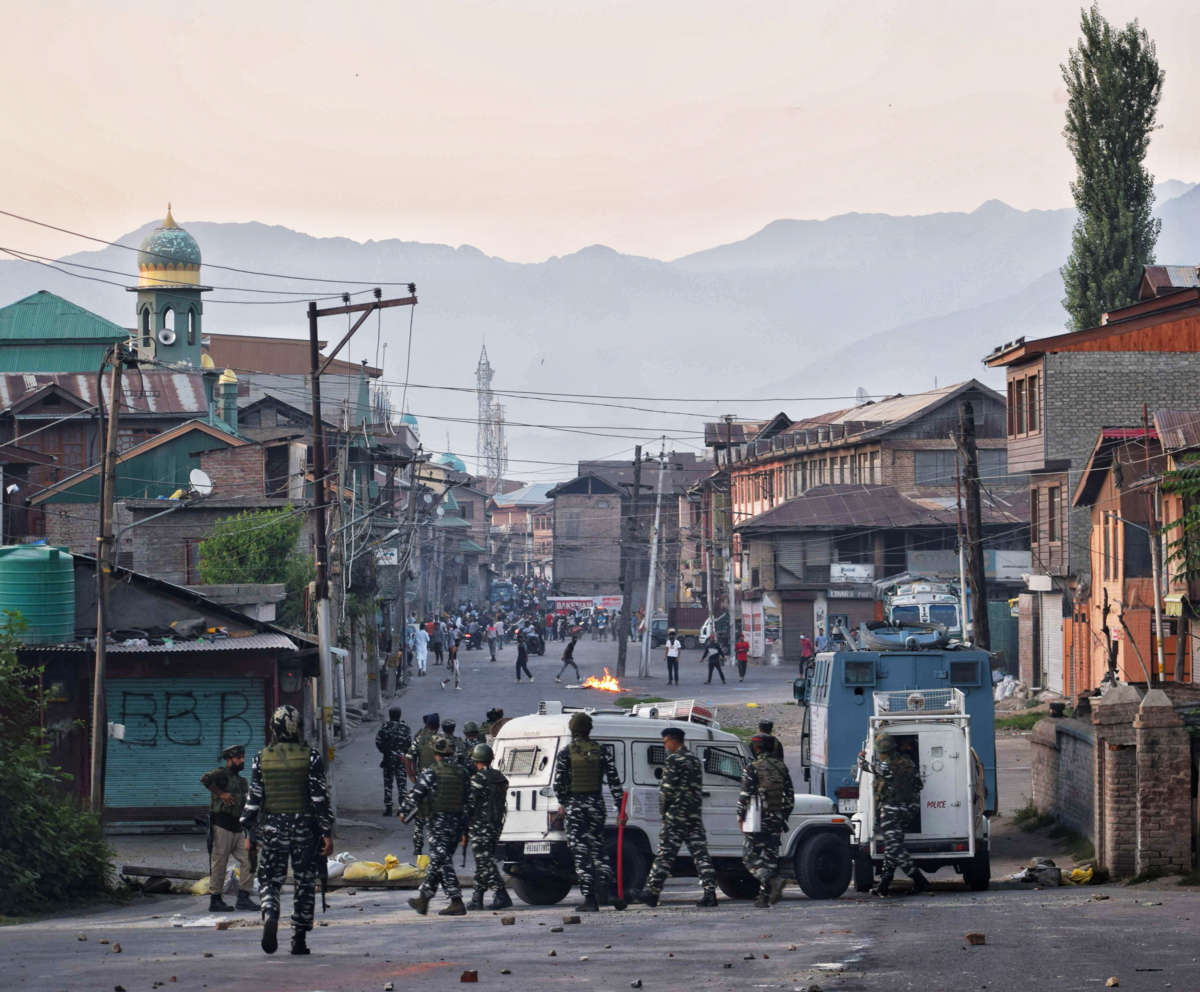
As news of Geelani’s death and forced burial spread across Kashmir on September 2, protesters clashed with heavily armed paramilitary forces in areas across Srinagar, despite the strict policing measures in place. While civilians shouted slogans and threw stones, police and paramilitary forces retaliated with teargas and lead-coated pellets. In Srinagar, one protester was severely injured, hit in the eyes and face with lead-coated pellets. Several protesters received minor injuries. Aggressive “anti-terror” laws also enable police to proactively detain “suspicious” persons. Dozens of people were arrested as a “preventive” measure following news of the protests.
In the following hours, new barricades and checkpoints appeared throughout the city of Srinagar, preventing residents from leaving their neighborhoods and accessing basic essentials and medical services. For three days, most internet and mobile phone services remained blocked.
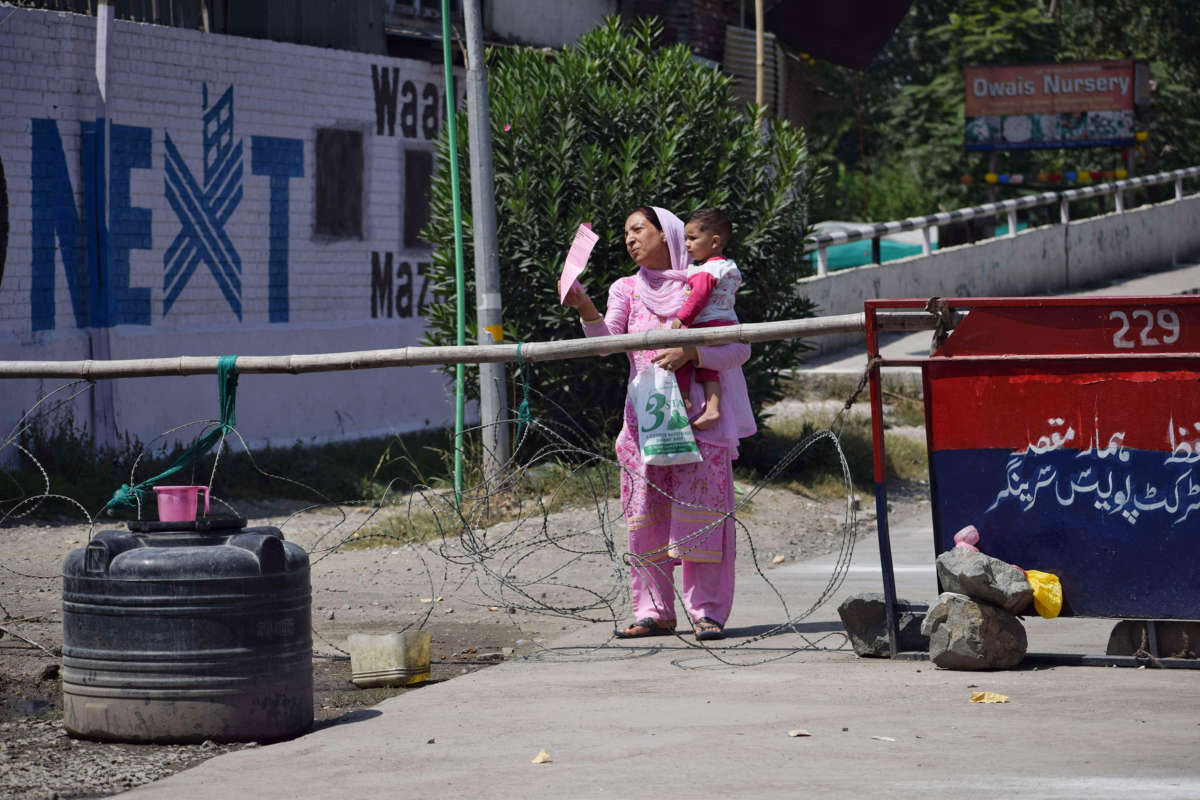
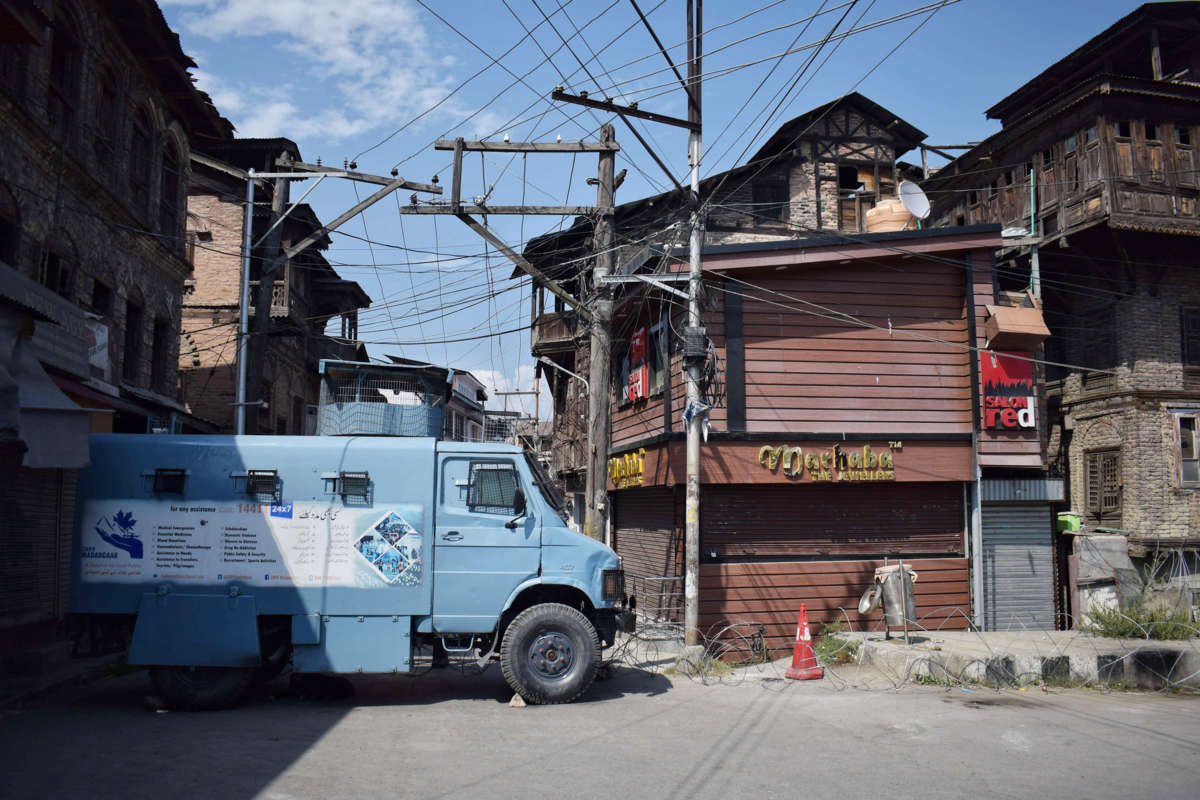
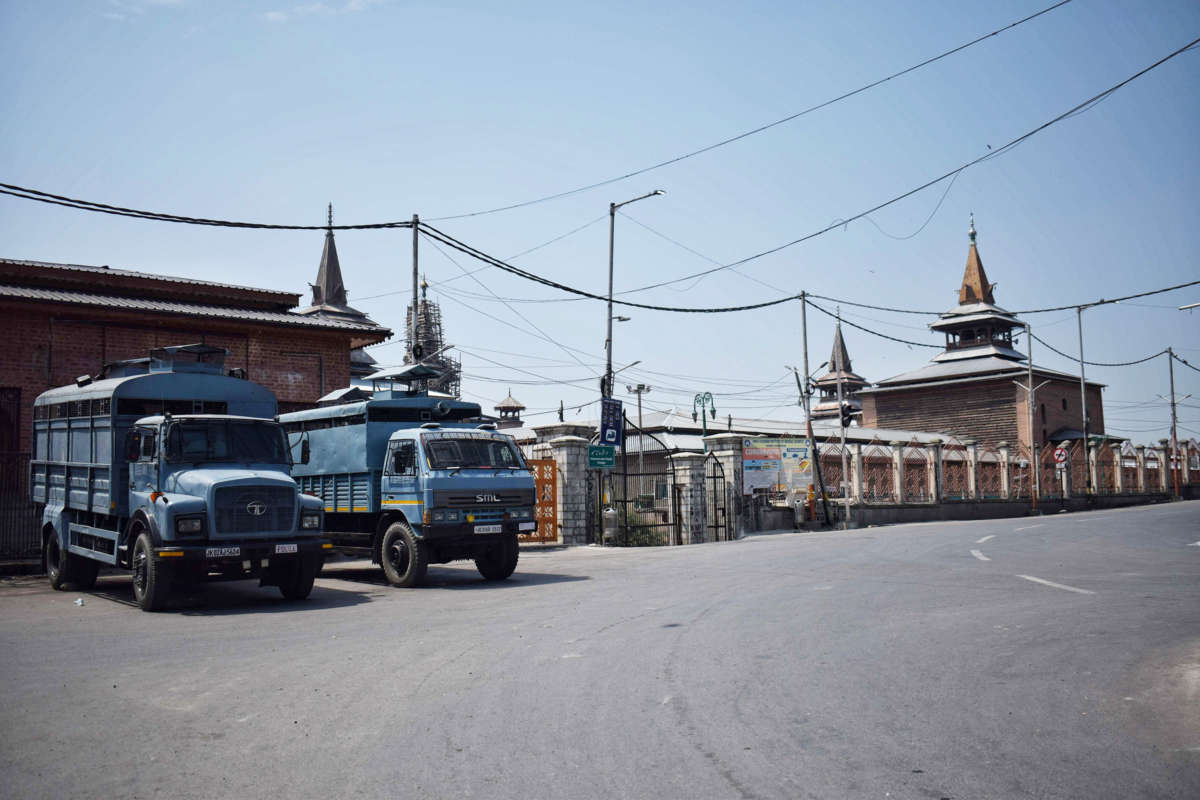
The following day, on Friday, September 3, mosques across Kashmir remained closed, ostensibly to prevent protests from erupting after Friday congregations. However, for many, the closure of mosques and prevention of collective prayers further signified the impossibility of collective mourning in Kashmir.
The Jammu and Kashmir police hurriedly buried the body of Syed Ali Shah Geelani in a local graveyard near his home, instead of at the Martyr’s Graveyard, as per the wishes of the deceased. The grave, considered a sacred site, remains militarized and under 24-hour surveillance.
Despite being one of the region’s most popular leaders, Geelani’s grave remains inaccessible to the public, media and even to his family, who were prevented from conducting prayers at the grave. “Even after death, Kashmiri bodies are not left alone because the Indian government fears martyrs,” said one witness who was prevented from praying at the grave.
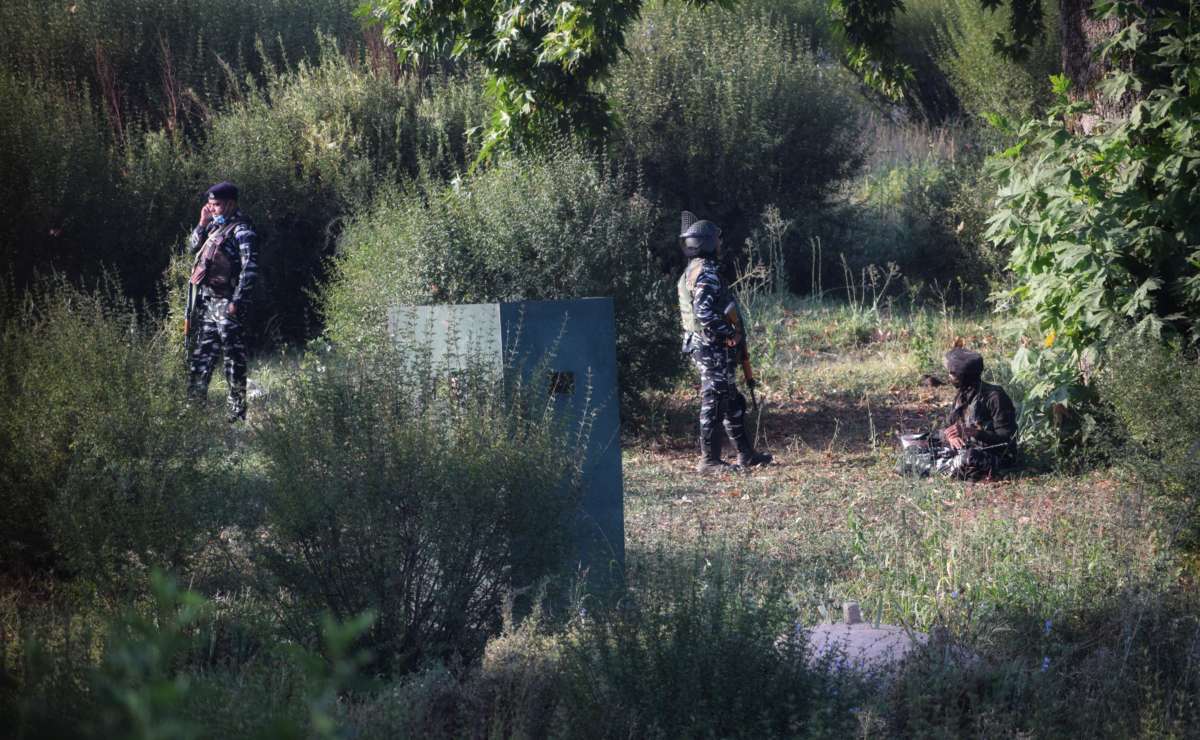
The Indian government has been keen to project an image of peace in the region after the widely criticized revocation of the region’s autonomy and statehood in August 2019. However, the severe security measures and the criminalization of mourning imposed after the death of Syed Ali Shah Geelani reveal the government’s fear of mass action and their delicate hold on the situation.
Meanwhile, people in Kashmir continue to mourn the death of one of the most important political figures in silence.
Holding Trump accountable for his illegal war on Iran
The devastating American and Israeli attacks have killed hundreds of Iranians, and the death toll continues to rise.
As independent media, what we do next matters a lot. It’s up to us to report the truth, demand accountability, and reckon with the consequences of U.S. militarism at this cataclysmic historical moment.
Trump may be an authoritarian, but he is not entirely invulnerable, nor are the elected officials who have given him pass after pass. We cannot let him believe for a second longer that he can get away with something this wildly illegal or recklessly dangerous without accountability.
We ask for your support as we carry out our media resistance to unchecked militarism. Please make a tax-deductible one-time or monthly donation to Truthout.
